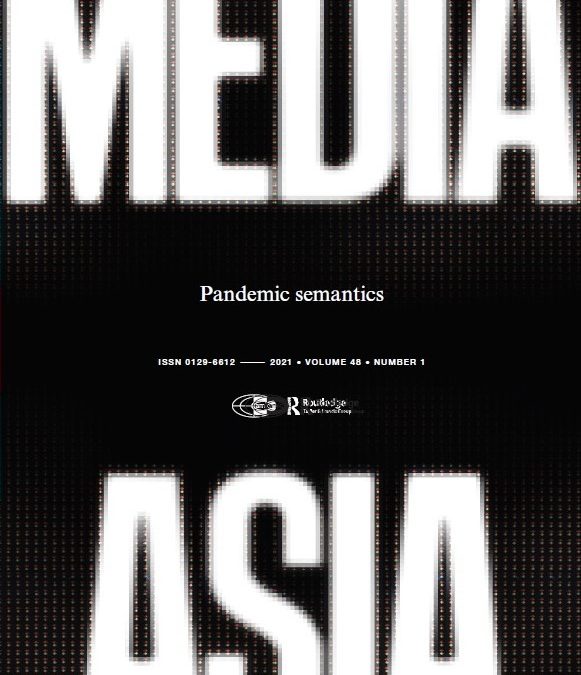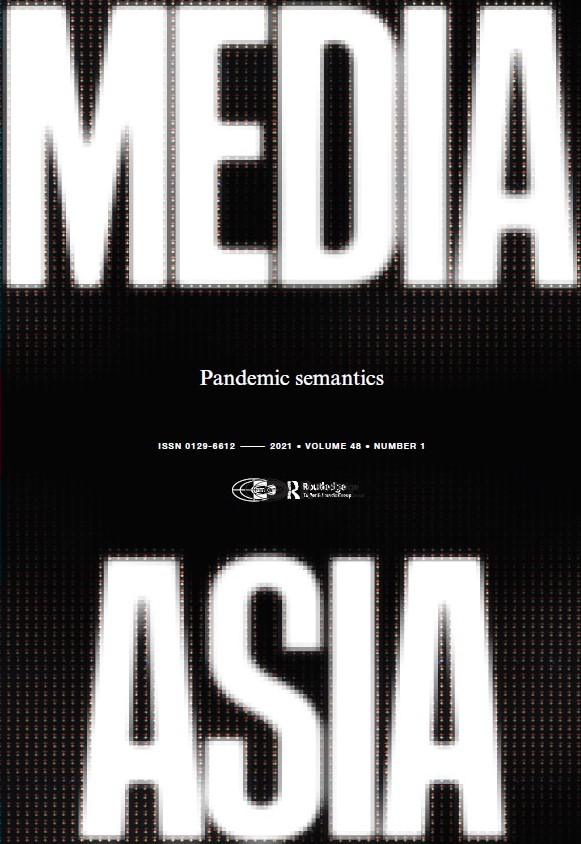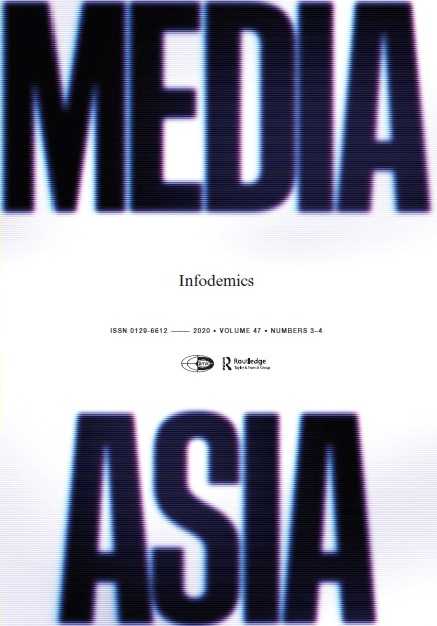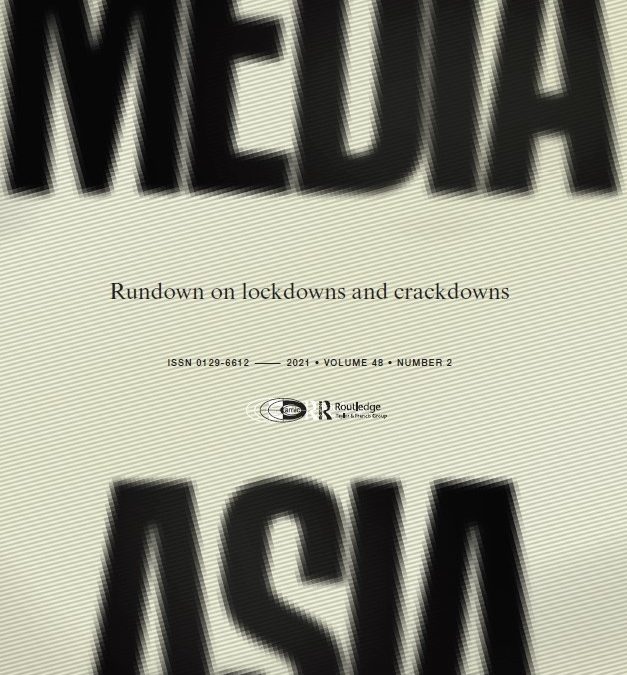
Articles published in Volume 48, Number 2 (June 2021) of Media Asia
Articles published in Volume 48, Number 2 (June 2021) of Media Asia
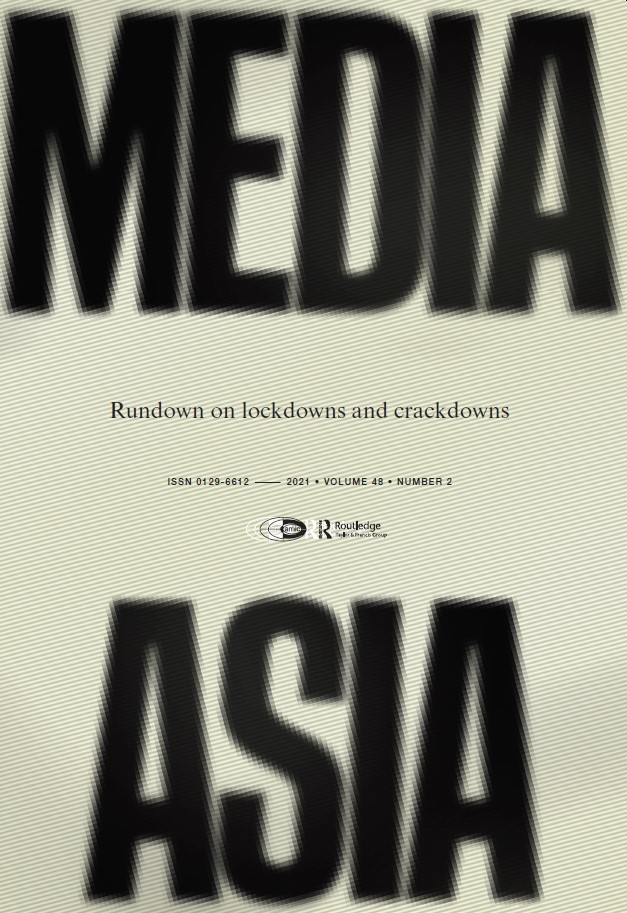
Editor’s Note: These are the articles included in Volume 48, Number 2 (June 2021) of our peer reviewed journal Media Asia. The information is provided to guide researchers in properly citing these articles.
Issue Title: Rundown on lockdowns and crackdowns
Editorial
Arao, D. A. (2021, June). The lowdown on lockdowns and crackdowns. Media Asia, 48(2), 85-88.
https://doi.org/10.1080/01296612.2021.1904327
Articles
Zhang, R. (2021, June). How media politicize COVID-19 lockdowns: a case study comparing frame use in the
coverage of Wuhan and Italy lockdowns by The New York Times. Media Asia, 48(2), 89 107. https://doi.org/10.1080/01296612.2021.1884518
Manalo, J. A. IV, Nidoy, M. G. M., & Corpuz, D. C. P. (2021, June). Knee deep in the Hoopla: Analyzing reportage of the
weevil-infested rice issue in the Philippines. Media Asia, 48(2), 108-122. https://doi.org/10.1080/01296612.2021.1902648
Zhang, D. (2021, June). The media and think tanks in China: The construction and propagation of a think tank.
Media Asia, 48(2), 123-138. https://doi.org/10.1080/01296612.2021.1899785
Commentaries
Astorga-Garcia, M. (2021, June). Surviving media repression before and during Martial Law in the Philippines.
Media Asia, 48(2), 139-143. https://doi.org/10.1080/01296612.2021.1881874
Reviews
Sarwatay, D. (2021, June). Alternative approaches to studying media policymaking in the Global South (review of Community Radio Policies
in South Asia by Preeti Raghunath). Media Asia, 48(2), 144-147. https://doi.org/10.1080/01296612.2021.1881288
Sanyal, D. (2021, June). Hollywood with a K: Review of Reel World by A. Pandian. Media Asia, 48(2), 148-150.
https://doi.org/10.1080/01296612.2021.1877914
Sanyal, D. (2021, June). Beyond the gendered chessboard: review of the miniseries The Queen’s Gambit. Media Asia, 48(2), 151-152.
https://doi.org/10.1080/01296612.2021.1881289
Sanyal, D. (2021, June). Food for thought: Film review of The Lunchbox. Media Asia, 48(2). 153-154.
https://doi.org/10.1080/01296612.2021.1881284

